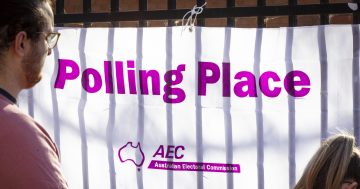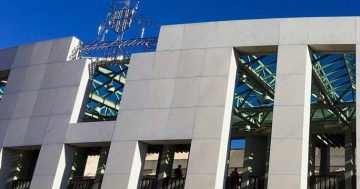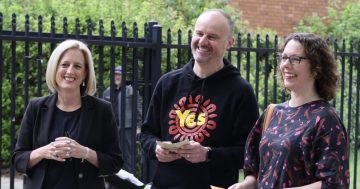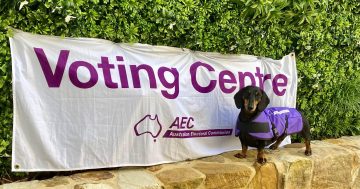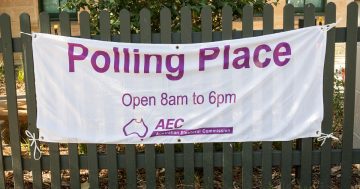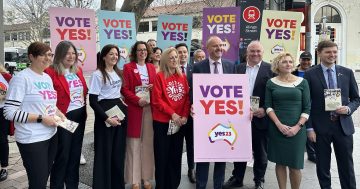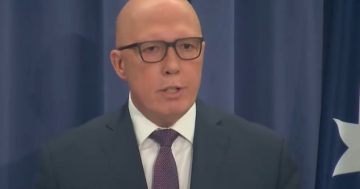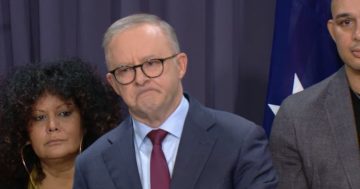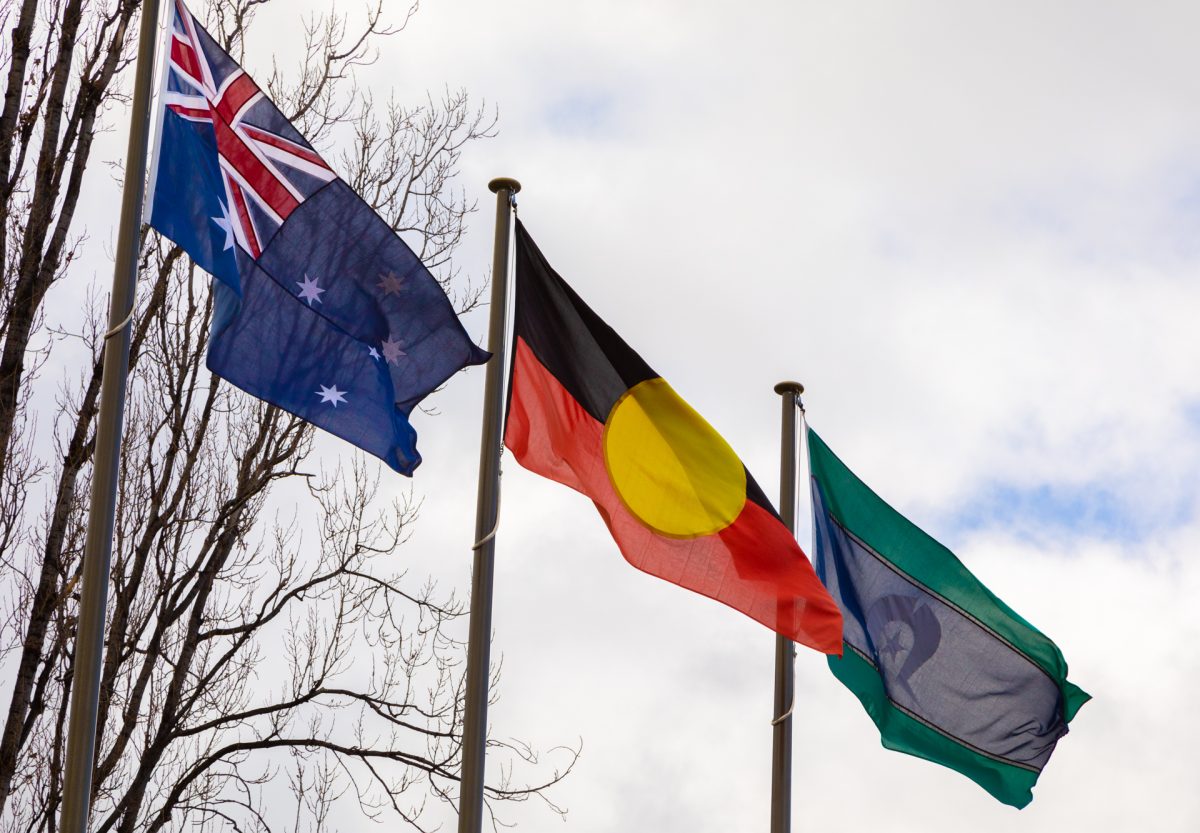
Australian, Aboriginal, and Torres Strait Islander flags fly as the nation prepares to vote in the Voice referendum. Photo: Michelle Kroll.
The formal ‘Yes’ and ‘No’ cases for the Indigenous Voice to Parliament can now be found on the Australian Electoral Commission’s website, after each side submitted their arguments.
The AEC listed and certified the cases on Tuesday (18 July) and uploaded them exactly as they were received, without any formatting or editing by the commission.
The No case has immediately sparked controversy, with former Australian Catholic University vice chancellor Professor Greg Craven furious that his words about the scope of the Voice (which he supports) have been “taken out of context” to promote the case against.
The wording for each case was authorised by a majority of members of parliament who voted for and against holding a referendum to change the Constitution to recognise Indigenous representation in lawmaking and policy development.
Both statements, while only summarising the respective cases, are quite lengthy at about 2000 words each and can be found in full here.
Proponents for the Yes case say the referendum is about a better future for Aboriginal and Torres Strait Islander people and all Australians.
“Vote yes for unity, hope and to make a positive difference,” their statement says.
They say voting yes is about recognising Indigenous Australians in the Constitution and paying respect to 65,000 years of culture and tradition.
And, they say, it is about listening to advice from Australia’s First Nations people about matters that affect their lives, so governments make better decisions.
“Making practical progress in Indigenous health, education, employment and housing, so people have a better life,” the Yes camp says.
“It’s a change only you can make happen. Vote yes to an idea that comes directly from Aboriginal and Torres Strait Islander people themselves – Constitutional recognition through a Voice.”
The No case centres its argument on four grounds, saying a Voice to Parliament would be legally risky, divisive, too unknown, and permanent.
“This referendum is not simply about ‘recognition’. This Voice proposal goes much further,” its statement says.
“If passed, it would represent the biggest change to our Constitution in our history.
“It is legally risky, with unknown consequences. It would be divisive and permanent. If you don’t know, vote no.”
The No camp also argues that a Voice to Parliament would not help First Nations people.
“We all want to help Indigenous Australians in disadvantaged communities, to close the gap and achieve reconciliation. However, more bureaucracy is not the answer,” it says.
“There are currently hundreds of Indigenous representative bodies at all levels of government, along with the National Indigenous Australians Agency, which has 1400 staff.
“A centralised Voice risks overlooking the needs of regional and remote communities.”
The AEC will now use those authorised submissions for the typesetting, printing and physical distribution of the Yes/No pamphlet to all households – about 12.5 million.
The AEC will also translate the submitted words into 20 traditional Indigenous languages, plus about 35 other languages.
The typeset pamphlet will be uploaded on the AEC website when it is available and will replace the current submitted versions.
Only one official Yes and one official No case will be included in the pamphlet.
Australians will cast their votes in a referendum later this year on whether to change the Constitution.
The wording on the ballot papers will read:
A Proposed Law: to alter the Constitution to recognise the First Peoples of Australia by establishing an Aboriginal and Torres Strait Islander Voice.
Do you approve this proposed alteration?
The proposed amendment to be inserted into the Constitution will also be included.
The provisions Australians will be voting to approve are:
- There shall be a body, to be called the Aboriginal and Torres Strait Islander Voice;
- The Aboriginal and Torres Strait Islander Voice may make representations to the parliament and the Executive Government of the Commonwealth on matters relating to Aboriginal and Torres Strait Islander peoples; and
- The parliament shall, subject to this Constitution, have power to make laws with respect to matters relating to the Aboriginal and Torres Strait Islander Voice, including its composition, functions, powers and procedures.












